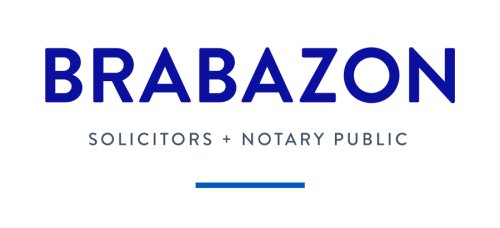Best Commercial Litigation Lawyers in Ireland
Share your needs with us, get contacted by law firms.
Free. Takes 2 min.
Or refine your search by selecting a city:
List of the best lawyers in Ireland
About Commercial Litigation Law in Ireland
Commercial litigation in Ireland refers to the process of resolving disputes that arise in the context of business and commercial relationships. These disputes can involve companies, partnerships, individuals, or other entities engaged in commercial activities. The Irish legal system provides specific mechanisms and courts, such as the Commercial Court (a division of the High Court), to address these matters efficiently. Cases can involve anything from contractual disagreements and shareholder disputes to competition law or issues pertaining to intellectual property.
Why You May Need a Lawyer
There are many scenarios where individuals or business entities may require the assistance of a commercial litigation lawyer. Common reasons include:
- Breach of contract disputes between businesses or business partners
- Disagreements regarding the supply of goods or services
- Intellectual property infringement claims
- Commercial property disputes
- Partnership breakdowns or shareholder disagreements
- Debt recovery actions
- Allegations of professional negligence in a commercial context
- Disputes over restrictive covenants and competition issues
- Fraud and misrepresentation claims
- Cross-border commercial disputes
Engaging a legal expert can help in understanding your position, identifying the best strategy, and ensuring your interests are protected throughout the legal process.
Local Laws Overview
Ireland’s commercial litigation landscape is shaped by several laws and procedural rules. The main considerations include:
- The Commercial Court division of the High Court deals specifically with disputes of a commercial nature where the value exceeds one million euro (except in certain cases).
- Litigation is generally governed by the Rules of the Superior Courts, which set out the procedures to be followed in commercial cases.
- Court proceedings can be lengthy and expensive, but there are alternative dispute resolution methods available, such as mediation and arbitration.
- Discovery of documents, injunctions, and summary judgment applications are commonly used tools in commercial litigation.
- Strict timetables and procedural requirements often apply, especially when the case is admitted to the Commercial List.
- Legal costs may be awarded to the successful party, but these can be at the discretion of the court.
- EU law can also play a role in cross-border disputes or when EU regulations are involved.
Frequently Asked Questions
What is commercial litigation?
Commercial litigation is the process of resolving disputes related to business and commercial activities through the courts.
How do I know if my case qualifies for the Commercial Court?
Your case may be admitted to the Commercial Court if it is primarily commercial in nature and involves a claim of at least one million euro, or a lower threshold in certain intellectual property and competition cases.
What kinds of issues are typically dealt with in commercial litigation?
Typical issues include breach of contract, business torts, partnership disputes, intellectual property infringements, shareholder disagreements, and competition law violations.
Is court the only option for resolving commercial disputes?
No, alternatives such as mediation and arbitration are often encouraged and can be effective in resolving disputes without the need for court proceedings.
How long does commercial litigation usually take?
The duration varies depending on complexity and whether the matter is admitted to the Commercial Court, which generally expedites the process. Cases can take several months to a few years.
What are the main stages of commercial litigation in Ireland?
Key stages include initiating proceedings, pleadings, discovery, potential interim applications (such as injunctions), trial, and judgment.
Can I recover my legal costs if I win?
The general rule is that the successful party is entitled to recover their legal costs, but this is at the discretion of the court and some costs may not be recoverable.
What are the risks of going to court?
Litigation carries risks such as loss of privacy, legal costs, delays, and the possibility of an unfavorable outcome.
Do I have to be a company to bring a commercial claim?
No, both companies and individuals can be parties to commercial litigation if the dispute arises out of a business context.
Should I get legal advice before starting proceedings?
Yes, obtaining legal advice early can help you understand risks, costs, and strategies, and may increase the chances of a favorable resolution.
Additional Resources
If you require further information or support, consider consulting the following organizations and resources:
- The Courts Service of Ireland provides official information on court processes and judgments.
- The Law Society of Ireland can help you find a solicitor with expertise in commercial litigation.
- Citizens Information offers guidance on legal rights and the litigation process in Ireland.
- Enterprise Ireland supports businesses and can provide resources related to commercial disputes.
- The Chartered Institute of Arbitrators Ireland (CIArb) for alternative dispute resolution guidance.
Next Steps
If you are facing a commercial dispute or believe you may need to commence or defend commercial litigation, take the following steps:
- Document all relevant facts and retain any contracts, correspondence, and evidence.
- Consult with a solicitor experienced in commercial litigation as soon as possible.
- Discuss the potential for alternative dispute resolution to avoid costly and lengthy court procedures.
- Consider the commercial implications, including potential costs and publicity.
- Follow your lawyer’s guidance and adhere to all legal deadlines and requirements.
Prompt action and professional advice can greatly improve your position and help you navigate the complexities of commercial litigation in Ireland.
Lawzana helps you find the best lawyers and law firms in Ireland through a curated and pre-screened list of qualified legal professionals. Our platform offers rankings and detailed profiles of attorneys and law firms, allowing you to compare based on practice areas, including Commercial Litigation, experience, and client feedback.
Each profile includes a description of the firm's areas of practice, client reviews, team members and partners, year of establishment, spoken languages, office locations, contact information, social media presence, and any published articles or resources. Most firms on our platform speak English and are experienced in both local and international legal matters.
Get a quote from top-rated law firms in Ireland — quickly, securely, and without unnecessary hassle.
Disclaimer:
The information provided on this page is for general informational purposes only and does not constitute legal advice. While we strive to ensure the accuracy and relevance of the content, legal information may change over time, and interpretations of the law can vary. You should always consult with a qualified legal professional for advice specific to your situation.
We disclaim all liability for actions taken or not taken based on the content of this page. If you believe any information is incorrect or outdated, please contact us, and we will review and update it where appropriate.
Browse commercial litigation law firms by city in Ireland
Refine your search by selecting a city.












